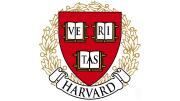Are the humanities in crisis (a spiral of declining student interest and course enrollments) or simply in need of some intelligent redesign (along the lines of the introductory courses that invite Harvard undergraduates into the sciences)? After pondering these problems (see “Invigorating the Humanities”), the arts and humanities faculty have determined to create courses that—as Romance languages scholar Diana Sorensen, dean of arts and humanities, put it—enable College students “to develop habits of mind, to develop a sense of how to reason rigorously, how to express ideas in a compelling way, and how to write well.”
Lest anyone forget, the rewards of study in the humanities and the arts are enormous and lifelong. By coincidence, two features in this issue make the point vividly. Porter University Professor Helen Vendler is widely known as the nation’s preeminent interpreter of poetry. Less known is her decades-long collaboration with Andrew Hoyem, the nation’s foremost producer of limited-edition letterpress art books. In a digital age full of lamentations over the death of print (The Onion recently ran an obituary notice), with libraries’ role uncertain, the Vendler-Hoyem partnership (see “A Nearly Perfect Book”) reaffirms brilliantly the art of critical interpretation and of careful artistic craftsmanship. Nannerl Keohane’s essay on using the classics as an essential guide to the educated life (see “Self-Fashioning in Society and Solitude”) is a paean to the enterprise of deep reading and humanistic thought. (Note to the career-conscious: Keohane has done just fine, without a computer-sciences degree.)
* * *
This magazine, of course, remains devoted to writing about Harvard for readers who really read. Our forthcoming mobile app, debuting in January, is premised on your interest in continuing to do so—when, where, and how you prefer.
~John S. Rosenberg, Editor








